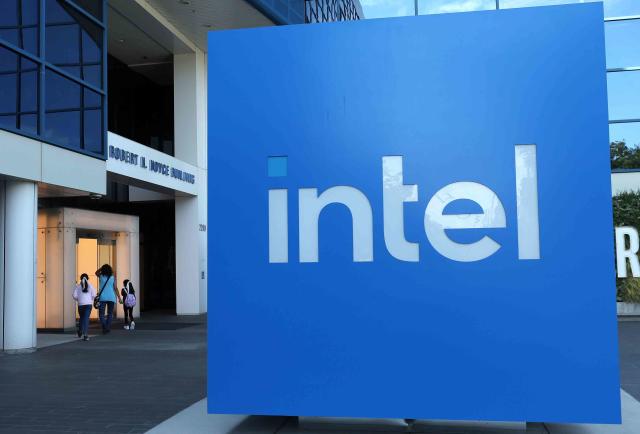New Bidder Emerges In The Form Of Apollo Global Management Inc. With A Multibillion Dollar Offer To Intel; What Will Be Qualcomm’s Strategy Now?
Apollo Global Management is considering a multibillion-dollar investment in Intel Corp., signalling strong support for the chipmaker's ongoing turnaround efforts. This comes as Intel faces a potential takeover bid from Qualcomm, sparking interest in what could be one of the largest tech deals in recent history. Apollo’s involvement offers Intel an alternative path, as it continues to work through financial challenges and aims to remain independent under CEO Pat Gelsinger’s leadership.

Apollo Global Management Inc. has expressed interest in making a significant investment in Intel Corp., indicating confidence in the chipmaker’s efforts to restructure itself.
According to sources familiar with the situation, Apollo has proposed investing up to $5 billion, providing Intel with a potential alternative to a takeover by its larger competitor, Qualcomm Inc.
Recently, Qualcomm floated the idea of acquiring Intel, raising the possibility of one of the largest merger and acquisition deals in the tech industry. This development has sparked speculation about other potential bidders, though Broadcom Inc. remains on the sidelines for now.
Intel’s stock reacted positively to the news, with shares rising by up to 4.2% in early trading on Monday, giving the company a market valuation of around $96 billion.
Intel’s leadership team is currently reviewing Apollo’s offer, though the proposal may evolve, or discussions could end without an agreement.
Apollo, a firm known for its distressed-investing expertise and diverse strategies in insurance, buyouts, and credit, already has ties with Intel. Earlier this year, Apollo purchased a stake in a chip plant joint venture in Ireland from Intel for $11 billion, helping Intel fund its ambitious factory expansion.
Under CEO Pat Gelsinger, Intel has embarked on an expensive transformation, aiming to develop new products and technologies while attracting external customers.
However, the company has faced challenges, with three consecutive years of declining sales and a stock drop of more than 50% this year.
Despite these struggles, recent announcements have provided hope for a turnaround, including a major deal with Amazon Web Services and plans to restructure Intel’s manufacturing division.
While Intel remains open to various strategic options, Gelsinger’s primary goal is for the company to stay independent.

Qualcomm’s Offer
A potential merger with Qualcomm or another major competitor would likely face regulatory challenges given the critical role semiconductor chips play in daily life.
Qualcomm’s potential acquisition of Intel comes with its own set of challenges, including financial and regulatory hurdles. Qualcomm, with only $13 billion in cash reserves, would likely need additional investors and divest some assets to make the deal feasible, according to analysts.
Meanwhile, Apollo’s interest in the semiconductor industry is not new, as the firm led a $900 million investment in Western Digital Corp. last year.
Qualcomm’s offer to acquire Intel represents a bold move in the semiconductor industry, positioning itself to take over a company that has long been a pillar in chipmaking.
Qualcomm’s interest in Intel comes at a time when Intel is facing a challenging period, struggling with declining sales, stiff competition, and the high costs associated with its turnaround efforts.
While Qualcomm has the potential to significantly enhance its market presence by absorbing Intel’s vast resources and technology, such a deal would face numerous obstacles.
For one, the regulatory environment would be highly scrutinized, as the merger of two major chipmakers could raise antitrust concerns across multiple jurisdictions. Chips are integral to a wide range of industries, from smartphones and personal computers to automobiles and home appliances.
Regulators would likely be concerned about reduced competition, particularly in the context of global supply chain issues for semiconductors.
In addition to regulatory hurdles, Qualcomm’s offer faces financial constraints. With only $13 billion in cash reserves, Qualcomm would need external funding or divestments of some assets to make the acquisition financially viable. This complex financial structuring could add further uncertainty to the deal.
Furthermore, Qualcomm’s strategic fit with Intel has raised questions.
Analysts have pointed out that integrating two companies with distinct business models and operations could present execution challenges. Intel’s primary focus has been on manufacturing and large-scale production, while Qualcomm has specialized in designing chips, especially for mobile devices.
This difference in approach could complicate any post-merger integration efforts, particularly in managing product lines and technological assets.
Despite these challenges, if successful, Qualcomm’s acquisition of Intel could reshape the global semiconductor sector, combining Qualcomm’s expertise in mobile technology with Intel’s capabilities in manufacturing and AI-driven semiconductors.
However, given the hurdles, it remains to be seen whether the proposal will move forward or lead to other strategic options for Intel.





